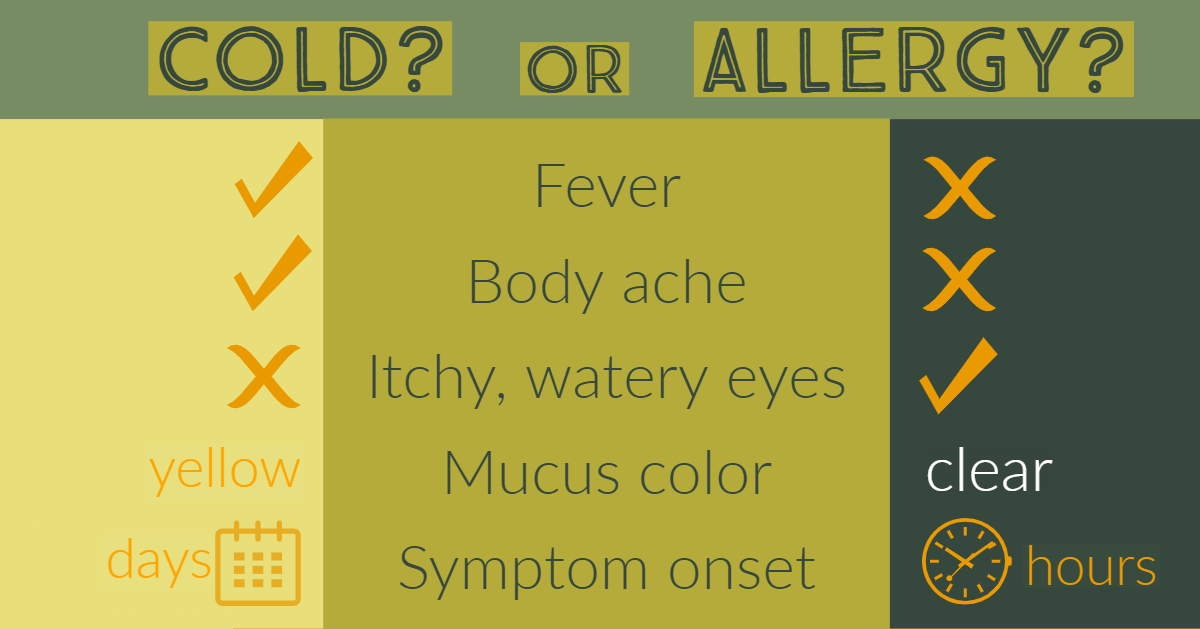Is it a Cold or is it an Allergy?

Every year around this time, a friend of mine struggles with his “annual cold.” It comes — almost like clockwork — at the same time, every year. Same symptoms — perpetual congestion, daily drip, cough, and endless sneezing fits. And it lasts far, far longer than it should. Then, again like clockwork, once the brutal Minnesota winter starts to fade, his symptoms do too.
You probably know someone who — like my friend — is always sick during hibernation season. It’s easy to blame a cold, but often we mistake symptoms that could be indicators of allergy, and that could be treated to stop the cycle of the “annual cold.”
Indoor allergens — especially in the winter when we tend to be cooped up — can be brutal for those who are sensitive to them. Dust mites, mold, pet dander, and other irritants like perfumes, fireplace smoke and other VOC-emitting compounds can make allergy and asthma sufferers miserable and exacerbate symptoms. That misery is sometimes shrugged off as a cold and left to linger until allergen build-up lessens.
How can you tell the difference between a cold an allergy when symptoms can be so similar?
- If you’re experiencing body aches, it’s likely a cold or flu.
- Fever? Cold or flu.
- Colorful mucus? That’s likely a cold or flu, but could also be a sinus infection made worse by allergies.
- But symptoms including watery eyes, sore throat, and runny or stuffy nose can be symptoms of “bugs” or allergy.
- If symptoms last for more than a couple of weeks or linger for months, the likelihood is that you have ongoing allergy exposure triggering your symptoms.
Rather than letting it linger, or recur year after year, talk to your local allergy provider about testing. Once you identify the triggers, you can make changes in your environment to lessen the exposure. Combine those changes with sublingual immunotherapy, or allergy drop treatment, and you could build tolerance to your triggers for good, and eventually stop the reactions and the overuse of medications that might temporarily mask your symptoms — but do little to stop them from making a return next season.
Author: Anne Hendrickson

